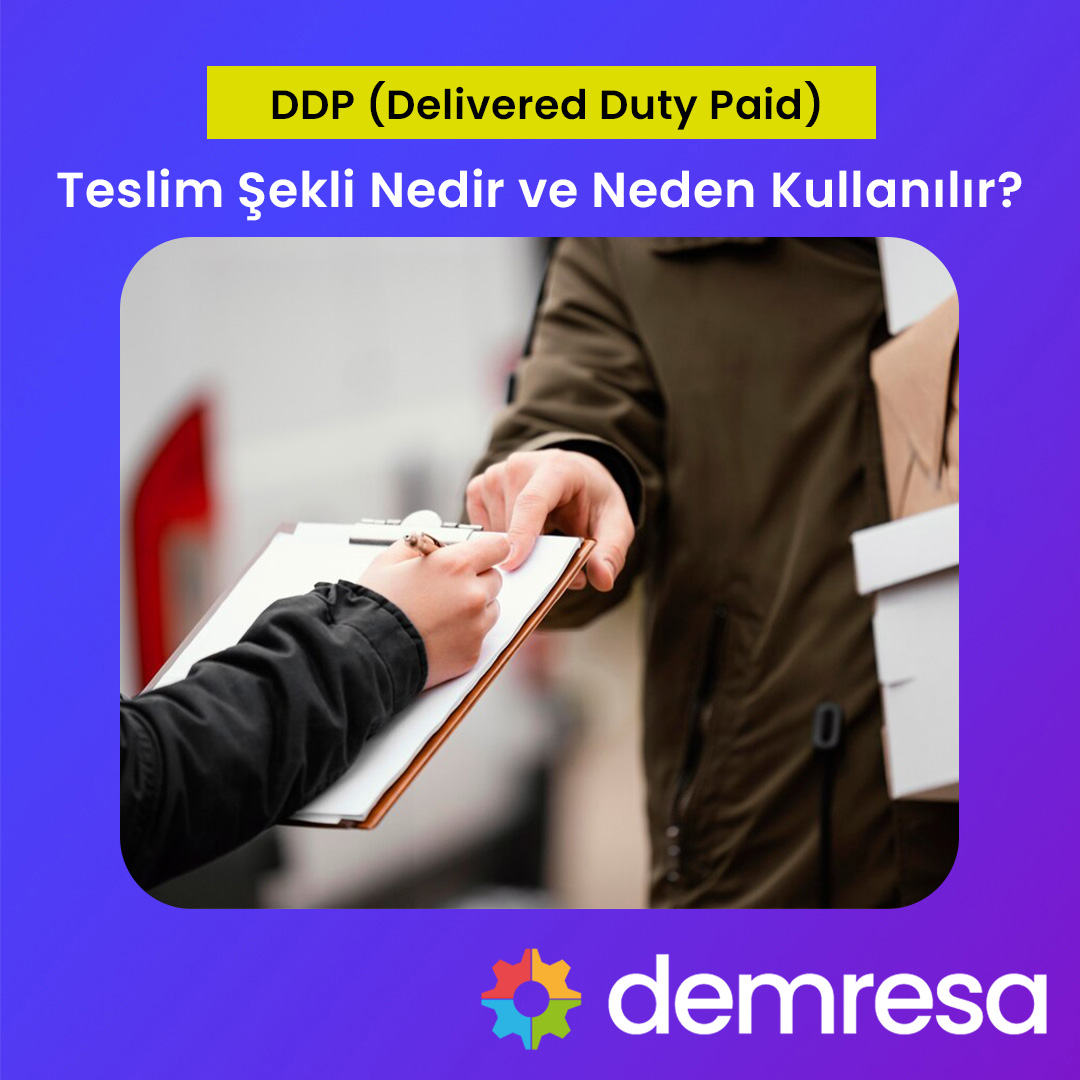
What is DDP (Delivered Duty Paid)?
DDP (Delivered Duty Paid) is a trade term where the seller delivers the goods to the destination, paying all customs duties and expenses. This delivery term is defined by Incoterms rules and is widely used in international trade. The seller covers all costs up to the agreed place, providing the buyer with significant ease in terms of cost and responsibility.
Why Use DDP Delivery Term?
DDP is typically preferred when the buyer does not want to be involved in the import process. The buyer is exempt from all taxes, customs, and logistics procedures under this term. This offers a great advantage, especially in countries with complex import regulations and taxes.
Features of DDP Delivery Term
- Full Responsibility on Seller: The seller handles all customs procedures, import duties, and other expenses.
- Risk Transfer: Risk passes to the buyer once delivery is completed by the seller.
- Convenience: The buyer does not have to deal with import procedures.
- Higher Cost: DDP may incur higher costs for the seller.
Seller Responsibilities in DDP
Under DDP, the seller assumes full responsibility until the goods reach the destination. This includes transportation, insurance, customs clearance, payment of taxes, and providing all necessary documentation. The seller ensures the buyer receives the goods without any financial obligations.
Buyer Responsibilities in DDP
The buyer assumes responsibility from the moment the goods are delivered. However, under DDP, the buyer has no financial obligations related to customs or import procedures. Responsibility for damage or loss transfers to the buyer after delivery.
Difference Between DDP and DAP Delivery Terms
The main difference between DDP and DAP (Delivered At Place) is that under DAP, the seller delivers the goods to the destination but customs duties are the buyer’s responsibility. Under DDP, the seller covers all taxes and import expenses, making it a more comprehensive delivery term.
Who Pays Freight in DDP?
In DDP, the seller pays the freight charges. The seller bears all transportation costs and maintains responsibility until the goods reach the destination, providing a cost advantage to the buyer.
Who Handles Insurance in DDP?
Typically, insurance under DDP is the seller’s responsibility. The seller assumes all risks during transit until the goods arrive and manages insurance claims if damage occurs. This applies unless otherwise specified in the contract.
How is DDP Pricing Calculated?
The DDP price includes the factory price of the goods, transportation costs, customs duties, and other import expenses. The seller calculates these costs and presents them to the buyer, and the contract is made based on these prices.
Is DDP Delivery Term Discontinued?
DDP remains valid in international trade rules and has not been discontinued. However, different delivery terms may be preferred in certain trade zones and countries. Thus, the frequency of DDP use varies by country and trade agreements.
When Can DDP Be Risky?
DDP can pose risks for the seller, especially in countries with high customs duties and complex import regulations. The seller must bear all these costs. Additionally, delays or errors in import processes can cause financial and time losses for the seller.
How Often is DDP Used in International Trade?
DDP is frequently used in international trade in specific situations, particularly when the buyer wants to avoid import procedures or when import duties are high. However, due to its higher cost, it is not used in every transaction.
How to Prepare a DDP Contract?
When preparing a DDP contract, all parties’ responsibilities must be clearly stated. Taxes, freight charges, insurance, and other expenses the seller must pay should be specified. Delivery timeframes and any penalties should also be included.
How Are Disputes Related to DDP Resolved?
Disputes involving DDP are generally resolved according to the terms in the contract. If disagreements arise, parties usually resort to commercial courts or international arbitration. Contract details and trade laws play a key role in the resolution process.
